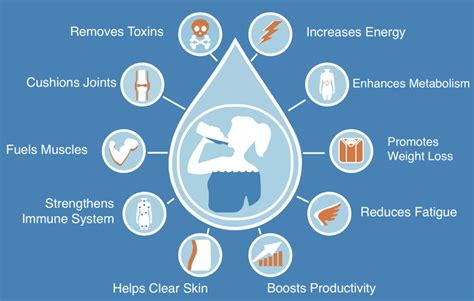How can nutrition optimize male hormone levels for peak strength & recovery?

The Crucial Link Between Nutrition and Male Hormones
For men aiming to maximize their physical potential, understanding the intricate relationship between nutrition and hormone levels is paramount. Hormones such as testosterone, growth hormone, and cortisol play pivotal roles in muscle protein synthesis, fat metabolism, energy levels, and the body’s ability to repair and recover. While factors like sleep and exercise are vital, the food you consume provides the foundational building blocks and signals that dictate hormonal balance and efficiency. Optimizing your diet can unlock significant improvements in strength, endurance, and overall well-being.

Macronutrients: The Foundation of Hormonal Health
The three main macronutrients – protein, fats, and carbohydrates – each contribute uniquely to hormonal balance.
Protein for Muscle & Hormone Synthesis
Adequate protein intake is non-negotiable for muscle growth and repair, which directly supports strength and recovery. Beyond its role in muscle, protein provides amino acids essential for the synthesis of various hormones and neurotransmitters. Aim for 1.6-2.2 grams of protein per kilogram of body weight, distributed throughout the day, from sources like lean meats, poultry, fish, eggs, and legumes.
Healthy Fats: Steroid Hormone Precursors
Often demonized, healthy fats are crucial for hormone production, especially steroid hormones like testosterone, which are synthesized from cholesterol. Insufficient fat intake can lead to a drop in testosterone levels. Incorporate a variety of monounsaturated and polyunsaturated fats from sources such as avocados, nuts, seeds, olive oil, and fatty fish (rich in Omega-3s). Saturated fats in moderation from quality sources can also be beneficial, but trans fats should be strictly avoided.
Carbohydrates for Energy and Recovery
Carbohydrates are the body’s primary energy source, fueling intense workouts and aiding in post-exercise recovery by replenishing glycogen stores. Sufficient carbohydrate intake also helps regulate cortisol, the stress hormone, preventing chronic elevation that can negatively impact testosterone. Choose complex carbohydrates like whole grains, fruits, and vegetables over refined sugars to maintain stable blood sugar levels and provide essential fiber and micronutrients.
Micronutrients: Essential Cofactors for Hormone Production
While macronutrients provide the bulk, specific vitamins and minerals act as crucial cofactors in hormone synthesis and regulation. Deficiencies in these micronutrients can derail even the most well-planned diet.
- Zinc: A vital mineral for testosterone production and immune function. Found in red meat, shellfish, legumes, nuts, and seeds.
- Magnesium: Plays a role in over 300 enzymatic reactions, including those involved in muscle function, sleep quality, and testosterone synthesis. Rich sources include leafy greens, nuts, seeds, and dark chocolate.
- Vitamin D: Often referred to as a prohormone, Vitamin D is directly linked to testosterone levels and overall bone health. Sunlight exposure is primary, but fatty fish, fortified foods, and supplements can help.
- B Vitamins: Essential for energy metabolism and managing stress. Found in a wide range of foods, including whole grains, meat, and leafy greens.
- Antioxidants (e.g., Vitamin C, E, Selenium): Help reduce oxidative stress, which can negatively impact hormone function. Found in colorful fruits, vegetables, nuts, and seeds.

Other Nutritional Considerations for Optimal Hormones
Hydration
Water is often overlooked but critical for all bodily functions, including hormone transport and enzymatic reactions. Dehydration can impair performance and recovery, and indirectly affect hormonal balance. Aim for at least 8 glasses of water daily, more with exercise.
Timing and Frequency
While total daily intake is key, strategic nutrient timing can further optimize hormone response. Consuming a blend of protein and carbohydrates post-workout can kickstart recovery, reduce cortisol, and promote an anabolic environment. Regular meal frequency can also help maintain stable blood sugar and energy levels.

Avoid Hormone Disruptors
Certain dietary choices can negatively impact hormone levels. Excessive sugar intake, processed foods, trans fats, and excessive alcohol consumption can lead to inflammation, insulin resistance, and reduced testosterone. Limiting exposure to endocrine-disrupting chemicals found in some food packaging can also be beneficial.

Putting It All Together: A Holistic Approach
Optimizing male hormone levels through nutrition is not about restrictive diets or magic pills, but rather a holistic, balanced approach. Prioritize whole, unprocessed foods rich in a diverse range of macronutrients and micronutrients. Pay attention to your body’s signals, ensuring adequate caloric intake to support your activity levels, but avoiding excessive overeating that can lead to increased body fat and estrogen dominance.
While supplements can play a supportive role, they should never replace a solid nutritional foundation. Focus on consistency, making sustainable dietary changes that you can maintain long-term. Combined with adequate sleep, consistent exercise, and stress management, a targeted nutritional strategy will empower you to achieve peak strength, accelerated recovery, and an overall vibrant hormonal profile.










